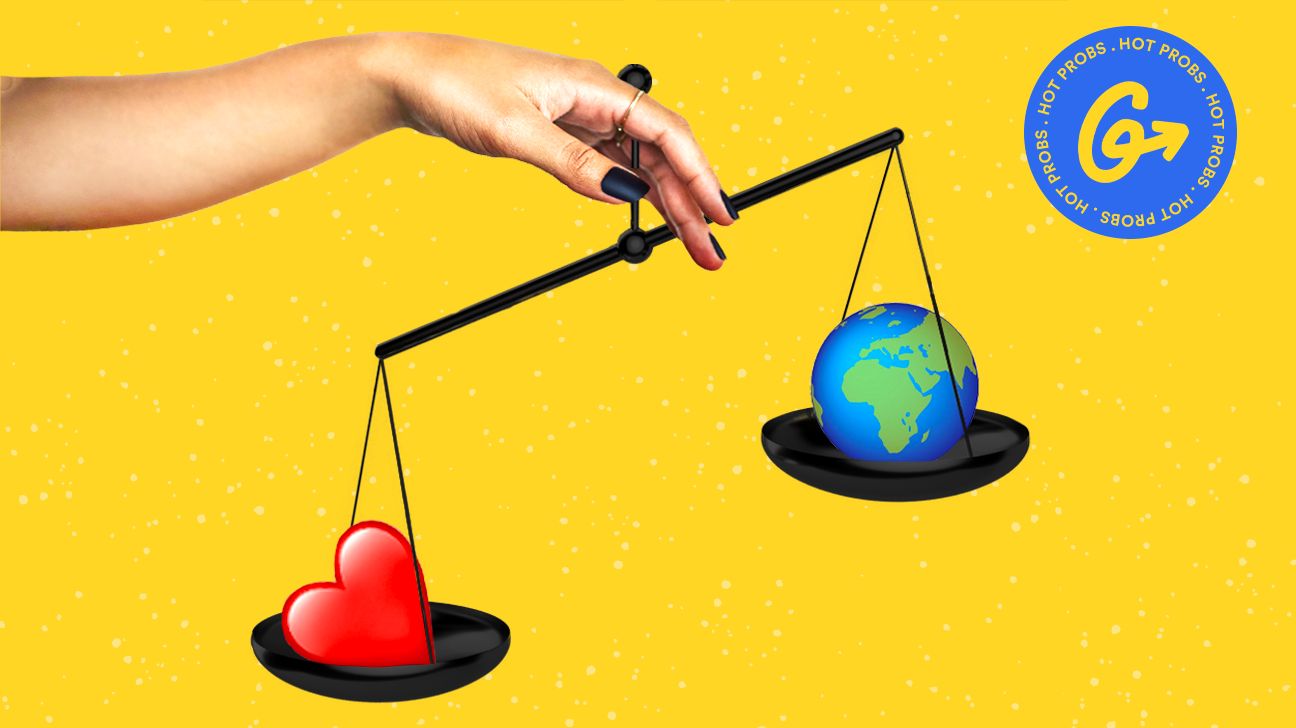
Like mortality or the vastness of space, the concept of love is both simple and supremely complicated. We were all born, we’ll all die, and we’re all floating on a weird dirty marble as it plays out. Those are the definitives of life that each person is automatically signed up for, fresh out of the box. The how, when, and why of those things differ wildly from person to person and from day to day.
In life, many of us share the common goal of seeking out and trying to understand love. We hunt and rebuke at our whim with little understanding of why, while love remains mysterious.
Do we need love? That depends on how you define love and what value you give it during certain stages of your life. Do we want love? Absolutely. Most of us are hardwired to seek out love, and we seek to give love in return (not always perfectly). It’s similar to how a dog is hardwired to form packs and sniff butts. In many ways, love is our inner psyche’s main goal. But love can come in more forms than you can easily count.
Before I lead us through a singalong of “what is love, baby don’t hurt me” in Hot Probs #6, I’ll say this: If there are questions you’re grappling with that you’d like me to chime in on, you can ask me about them here. Don’t worry, it’s 100 percent anonymous, and there’s no question that I’ll look down on. And maybe I’ll help you, or maybe I’ll just give you that laugh you need to get through the rest of the day.
The Hot Prob:
“Love. What is love? Is love a requirement to be a human being or in human society? Could we function as a culture without it?”
If you asked 100 different people to define love, you’d get 100 different answers. To me, love is the feeling of being at home in someone’s company. It’s a mutual bond of caring and support that, although unconditional, changes in many ways as the people involved change and grow. As I’m writing this, I asked my wife to give her definition of love. Since we’re about to celebrate our sixth wedding anniversary, it made me happy to see that our definitions were very similar. She defines it as “The feeling of caring for someone in a complete and absolute way. Also, feeling safe.”
Writer Marisa Donnelly pulled 36 definitions of love and compiled them in a post for Thought Catalog in 2016. The definitions ranged from “The most spectacular, indescribable, deep euphoric feeling for someone” to “Nature’s way of tricking people into reproducing.” One definition in particular really stood out to me in the post, and that’s “Love is giving someone the power to destroy you, and trusting them not to.”
By the time this post goes live, my wife and I will have already celebrated our anniversary, but it’s tomorrow as I’m writing it now. In the card I bought to accompany her gifts, I wrote, “Thank you for waking up every day and choosing to love me all over again.” That, to me, is another definition.
Is love a requirement to be a human being functioning in society? I’d say no. It’s definitely not a requirement. But I’d also say that maybe people who claim to have no love in their lives probably do. It’s possible that they just haven’t landed on their definitions yet, so they have no way of realizing that love.
Some people might not feel like they’re worthy of love. They may see the love they’re being given as fake or a sign of pity. Many of us have experienced forms of abuse or trauma in relationships and friendships. These experiences can make it hard to recognize love or see it as something to give or want.
Love may make you vulnerable and open you up to a tremendous amount of pain. It takes a lot of bravery to offer your most instinctual and primal emotions up to someone who could, on a whim, deal a crushing blow that could cause you to question everything you feel and want for years. But what else in life is worth the risk of that pain more than love?
Could we function as a society without love? Sure. But take a minute to think about how that would look. Imagine supporting your dog at the vet without seeing that extra warmth in the vet’s eyes as they perform the examination or going on dates without daydreaming about waking up next to each other or visiting your family out of sheer obligation. As described by the scenarios above, a society without love makes me think of how I’d imagine Hell would look. C.S. Lewis has a lengthy quote to this point in his book The Four Loves that’s perfect and relevant enough to close with here:
“There is no safe investment. To love at all is to be vulnerable. Love anything, and your heart will certainly be wrung and possibly be broken. If you want to make sure of keeping it intact, you must give your heart to no one, not even to an animal. Wrap it carefully round with hobbies and little luxuries; avoid all entanglements; lock it up safe in the casket or coffin of your selfishness. But in that casket — safe, dark, motionless, airless — it will change. It will not be broken; it will become unbreakable, impenetrable, irredeemable. The alternative to tragedy, or at least to the risk of tragedy, is damnation. The only place outside Heaven where you can be perfectly safe from all the dangers and perturbations of love is Hell.”
Kelly McClure is a writer who has written for NY Magazine, GQ, The Hairpin, Rolling Stone and more. Find more of her work here.
